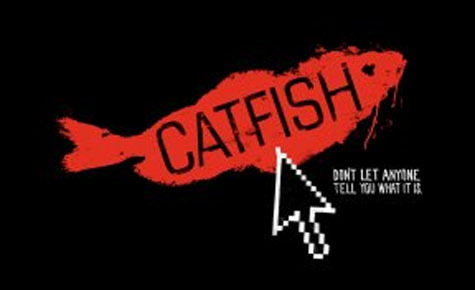
Anyone who uses an Internet-connected device for social media, emailing, bill paying or just about any other activity should be aware that there are malevolent individuals who prey on unsuspecting web users. The Internet is rife with online hoaxes that can cause you significant harm. Below, we’ve outlined some common hoaxes that you should be aware of when surfing the web.
Catfish Manipulators
Catfishing occurs when a person misrepresents himself online in order to deceive another, according to this infographic from Instant Checkmate. Oftentimes, a catfisher will create a phony social media profile or troll another love-seeker by pretending he’s someone that he’s really not. Some go as far as using phony pictures, support networks and biographies to shape perceptions. While victims of catfishing are often too embarrassed to reveal their experiences to the media, one such case recently made the news.
A catfisher duped Vivian Shikwambana into thinking that he was the popular Premier League soccer player, George Lebese, according to SundayWorld. He created a fake Facebook profile that Vivian found and messaged. The two spent significant time chatting online until this past February when Vivian read a newspaper article about how the popular soccer player had several online impersonators. She later found out that the person who she was corresponding with was one of these catfishers.
Phony Craigslist Ads
While Craigslist and other online classified listings serve as valuable tools for those in search of used goods, it has a dark side. Plenty of criminals use the website to list goods that either don’t exist or are in shoddy shape. They then meet up with the buyer and sell them goods that malfunction, or they cause rob or cause harm to the buyer.
According to the Morning Journal, a 28-year-old man recently reported that he met with a man from Craigslist to check out a vacant apartment. He gave him $200 as a down payment and was told to return with the rest of the deposit later that day so that he could move in. When he returned to the address, the phony landlord was nowhere to be found.
Phishing
Phishing involves the transmission of fake e-mails from criminals who portray banks, service providers and just about any other organization with customers. Their goal is to impersonate your service provider so well that you click on the e-mail’s links or respond to their message and reveal sensitive information about yourself and your finances. Phishers may portray PayPal or other financial institutions in hopes of procuring user names, passwords, checking account numbers and routing numbers.
Coindesk.com reports that thousands of messages were recently sent from phishers portraying a Blockchain wallet. The messages contained malicious links that advertised the Bitcoin currency. Nearly 3 percent of recipients clicked these links that prompted them to reset their wallet passwords. In reality, the phishers stole the users’ information in order to gain access to their accounts.
Impersonation of a Friend
Some Internet con artists go as far as impersonating an individual’s friend or former acquaintance in order to scam them into opening their pocketbooks. While this may seem difficult to pull off, the tactic has fooled more people than most would believe.
According to the Spencer Daily Reporter, Linda Harders recently fell victim to an online impersonator. Her error in judgment set her back over $1,000. The con artist contacted her through a social network while impersonating one of her friends. He claimed that her friend had won big on Powerball and that she was next in line for a drawing. She submitted her personal information and paid a phony tax clearance fee only to later learn that she had turned over her savings to criminals.
Fake Giveaway Promotions
Scammers often take to Facebook and other social media outlets to promote phony giveaway promotions. These fake pages promise free goods to anyone who follows their instructions. They typically ask users to like their pages and spread the word to their friends to receive free promotional items.
According to AllFacebook.com, con artists recently impersonated retailer Kmart by promising $1,000 gift cards to those who clicked their links and shared the giveaway details on their Facebook pages. In reality, the gift cards didn’t exist and Kmart had nothing to do with this fake giveaway.
